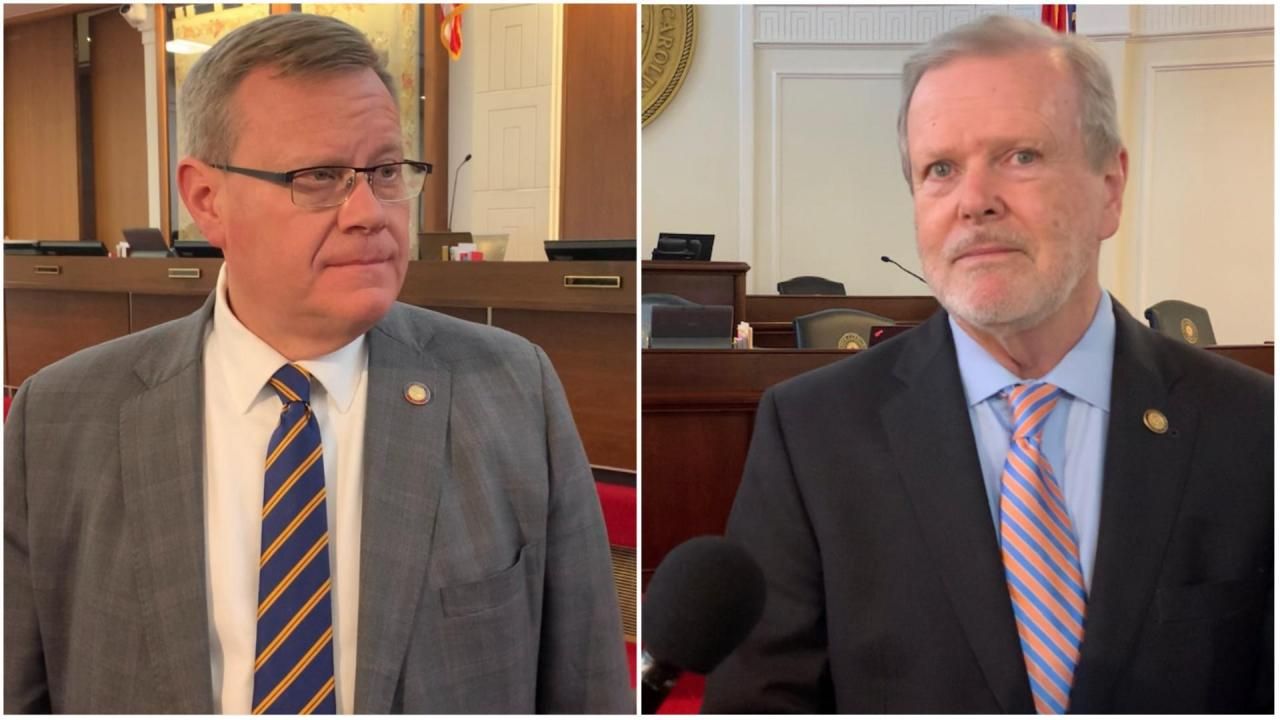NC lawmakers, controller want Leandro back in front of the state Supreme Court

Republican state lawmakers and the state controller are pushing for a long-running education lawsuit to return to the newly Republican-majority North Carolina Supreme Court.
The push comes three months after the high court’s former Democratic majority ordered the controller and two other state executives to transfer hundreds of millions of dollars toward funding initiatives agreed to in the court case, Hoke County Board of Education, et. al., v. State of North Carolina, which is commonly known as the Leandro case after one of the plaintiffs.
The transfer would bypass the normal funding process by excluding lawmakers from it. In the normal process, the General Assembly would pass a bill to appropriate funds, prompting executives with access to the money to write the checks for the bill.
Republican lawmakers didn’t participate in the agreement and don’t support the initiatives. Controller Nels Roseland, appointed by Democratic Gov. Roy Cooper and confirmed this week, has contended, as did his Republican predecessor, that he cannot be compelled to transfer funds without specific legislation ordering it.
The legal proceedings could stretch for months, on top of the three decades since the lawsuit was first filed. Plaintiffs are seeking billions of dollars and regulatory changes to help North Carolina’s 1.5 million public school students receive a “sound basic education.”
The Leandro lawsuit was filed in 1994 by school boards and families in five lower-income counties, who alleged the state was not providing an adequate education promised by the state’s constitution. A 2004 Supreme Court order largely agreed, though it invited the superior court to further litigate allegations beyond Hoke County.
The North Carolina Supreme Court ruled in November, by a 4-3 Democratic majority, that violations had been found statewide in prior superior court proceedings and ordered the state to pay up. A newly appointed superior court judge will decide how much needs to be paid to remedy issues, but only for this fiscal year and for what’s overdue from last fiscal year. A state budget official estimated that amount could be $677.8 million.
This week, Roseland asked the North Carolina Supreme Court to issue a writ of prohibition, which would pause the order for Roseland to transfer the funds. Roseland is asking the court to do that while it hears further arguments over how the transfer can be conducted in adherence with the state’s constitution. Roseland contends that question wasn’t fully briefed before the court during oral arguments last August.
State Senate Leader Phil Berger, R-Rockingham, and House of Representatives Speaker Tim Moore, R-Cleveland, are asking for a writ of certiorari, which would send the case back from trial court to the Supreme Court to address “numerous unresolved questions regarding the proper interpretation of our State Constitution.”
That question, they wrote, includes “the roles of the respective branches within our system of Separation of Powers, the substantive requirements of the State’s obligation to provide children with the opportunity for a sound basic education, as well as the scope and extent of the judiciary’s power under the Appropriations Clause. Those questions demand review, and until answered will leave the trial court without guidance as to how to proceed in one of the most consequential cases ever to be filed in this State.”
WRAL News has reached out to Berger's and Moore's offices for comment.
The remedies agreed to in court — by Cooper, the State Board of Education, Attorney General Josh Stein and the plaintiffs — calls for at least $5.6 billion in new, annual education spending by 2028 to shore up school resources, as well as numerous policy changes concerning school improvement and accountability. It’s often known as the “comprehensive remedial plan” or the “Leandro Plan.”
New funding would go toward numerous efforts, including special education, early childhood education and turnaround of lower-performing schools.
Every Child NC, a consortium of nonprofits that support the plan, said in a statement that they were disappointed with the filings made by Roseland, Berger and Moore. The group lamented the continued disparities in outcomes for certain student groups, students’ growing academic and mental health challenges and worsening staffing shortages in schools.
"Given this context, it is unconscionable that state officials are taking unprecedented steps to deny students less than one-fifth of what the Court has already determined they are constitutionally owed,” a group statement reads. “Years two and three of the Leandro Plan only get us part of the way to having an education system that lives up to our Constitution. Our children deserve so much more than what these officials are seeking to deny.”











